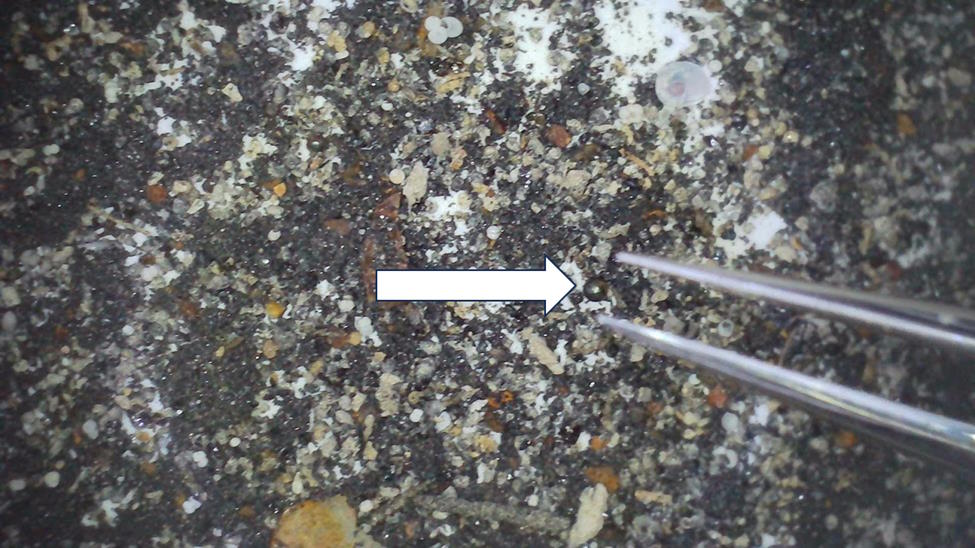Watch: Harvard astronomer explains SETI to the legend who inspired Carl Sagan’s “Contact”
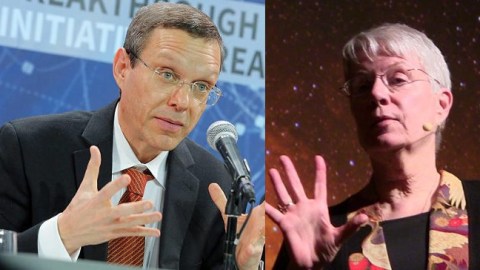
One of the most fascinating questions in all of science is: “are we alone?” Since our distant ancestors first gazed at the heavens and had the thought that there might be other worlds with life on them, it’s set our terrestrial imaginations alight. Prior to the mid-20th century, the only hope we had of detecting an extraterrestrial presence would have been if it would have arrived on Earth and announced its presence to us. But the past few decades have transformed this existential question from a philosophical one into a scientific one.
Although many scientists were initially resistant to the question of life beyond Earth — as the field was littered with pseudoscientific claims, examples of people fooling themselves, and spurious results — it’s now a bona fide scientific endeavor. Astrobiologists, exoplanet astronomers, planetary scientists, and SETI scientists, among others, all search for life beyond Earth: from simple life on other planets in our Solar System to potential biosignatures and even technosignatures from the far reaches of deep space. One of SETI’s great pioneers is Dr. Jill Tarter, on whom Dr. Ellie Arroway from Carl Sagan’s Contact is largely (but not wholly) based: a legend in her own time.
And yet, on February 12, 2021, in a discussion after giving The Golden Webinar in Astrophysics for the general public (full talk here), Harvard Astronomer Dr. Avi Loeb responded to a legitimate criticism from Dr. Tarter in one of the most toxic ways imaginable. It’s an eminently teachable moment, so let’s show it to you and then break it down moment-by-moment.
The context. You can hear Dr. Tarter start off calmly and dispassionately expressing her displeasure at something that has occurred in the recent past on multiple occasions, including in his talk here: Dr. Loeb’s characterization of the scientific field that’s investigating extraterrestrial life and extraterrestrial intelligence. She says (transcription mine),
“So Avi, I get a little bit pissed off when you throw the entire scientific culture under the bus. Because some of us have been thinking about — and building instruments to find — anomalies for a very long time. And I think that when we say that, ‘if we are ever going to announce such a detection, that we require extraordinary evidence,’ we’re doing that as a way of differentiating ourselves from the pseudoscience that is so much a part of popular culture, with UFOs and all kinds of claims of things that people have detected. So I wouldn’t be so hard on the whole culture, Avi.”
What’s this all about? Nominally, it’s about an astronomical event that occurred in 2017: our first robust detection of an object originating from interstellar space passing through our Solar System, the interloper ‘Oumuamua. It was an interesting object in a number of ways: small, faint, oddly shaped, without a tail or coma, and yet with a significant non-gravitational acceleration.
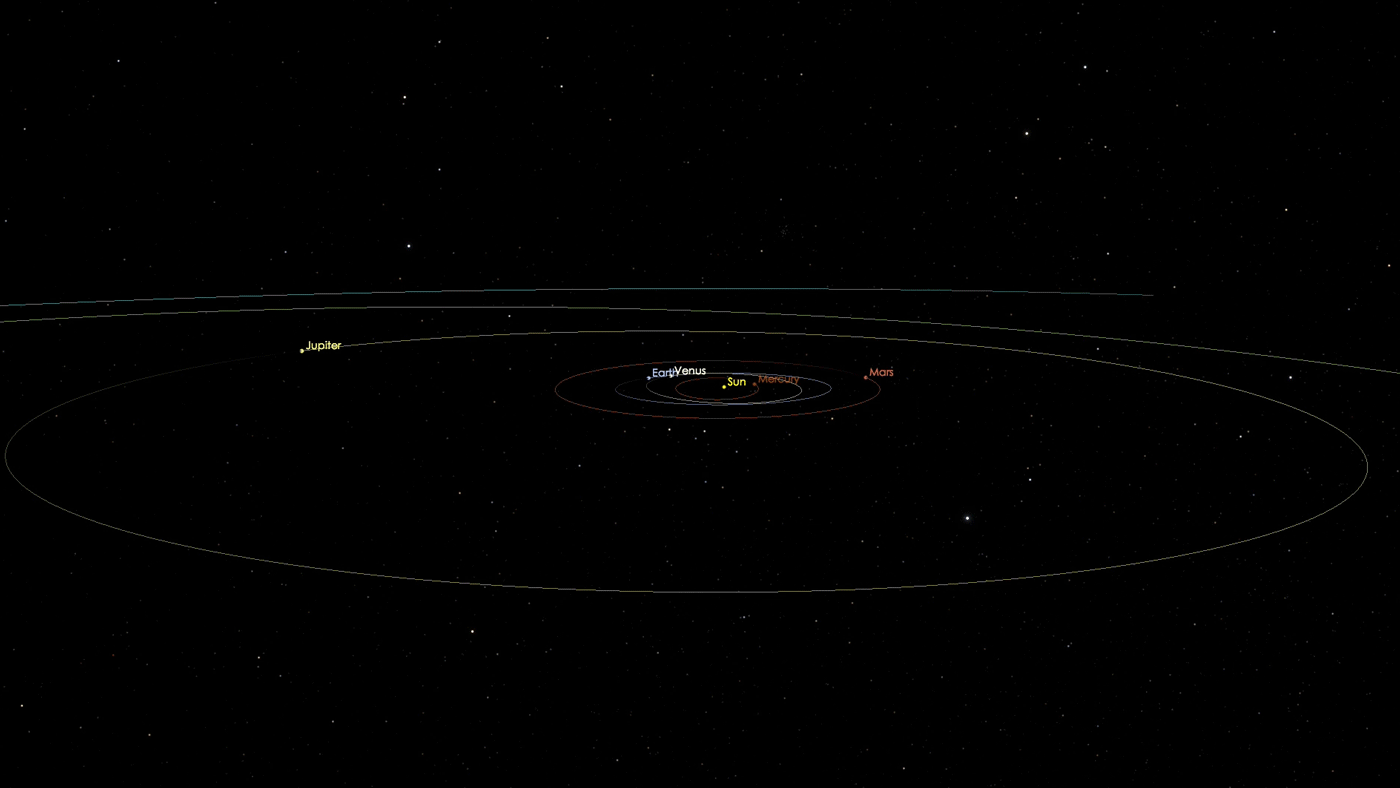
Since the discovery of ‘Oumuamua, a myriad of experts in various astronomical, astrobiological, and planetary science sub-fields have written papers about this object, attempting to puzzle out what its nature and origin might be. Many of the potential explanations are incredibly fascinating, and range from partially darkened objects to iceberg-sized fragments of an ancient collision.
What Loeb is advocating for, however, is an explanation that resorts to extraterrestrials, claiming this is a light-sail, similar to the type envisioned by the Breakthrough Starshot project that he chairs. He co-wrote a scientific paper on this topic early on putting forth this hypothesis, which (understandably) failed to gain traction with astronomers, as:
- there is nothing observed about this object that is inconsistent with a natural explanation,
- there is a large population of naturally occurring interstellar objects of a class consistent with ‘Oumuamua (about ~10²⁵ of them) expected to be out there,
- and there is no better data forthcoming that can observationally discern between various explanations for ‘Oumuamua.
(You can read a full redux of the leading scientific thought on ‘Oumuamua’s nature here.) Loeb has railed against the lack of interest and attention his hypothesis has generated, accusing the community of being “mediocre scientists,” succumbing to “groupthink” and living in fear of entertaining new ideas. He has doubled down on his own idea, despite — as Dr. Tarter alluded to — having no “extraordinary evidence,” which is the scientific standard for such an extraordinary claim.
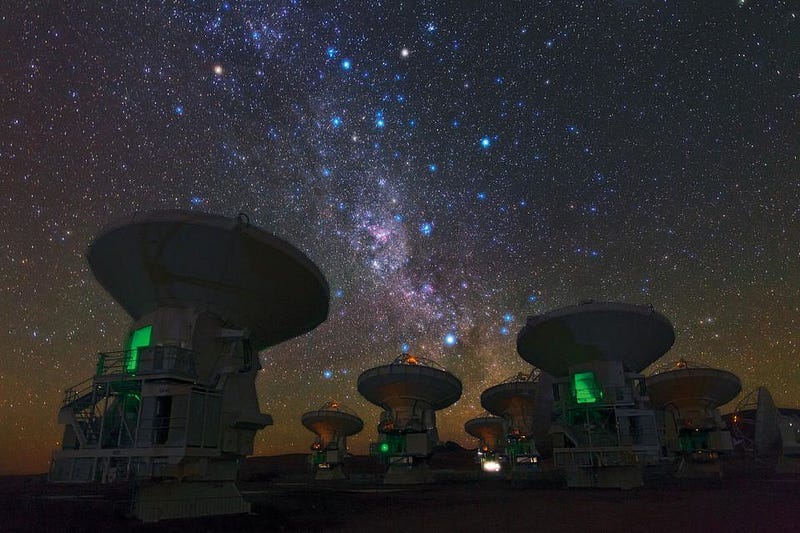
The first response: a deflection. Rather than directly confronting Dr. Tarter’s question — which was about Loeb’s incorrect and harmful characterization of the overwhelming majority of responsible, quality scientists working in the field and conducting the excellent science that makes Loeb’s speculations even possible — Loeb instead decides to talk about… funding for SETI.
“Well, let me explain. To your first point, I’m talking about a factor of a thousand in funding. I’m not talking about a factor of two, over a decade, increasing funding. I’m saying there is a discrepancy by a factor of a thousand in what needs to be the case relative to what is the case of the community that you’re talking about. A factor of a thousand is a big factor in funding, and moreover, it’s even a bigger factor in bullying! Because anyone that makes a suggestion in the direction of technological signatures is being bullied and ridiculed!”
Now, this is a serious accusation to make: is it true to assert that one would be academically bullied for simply suggesting technosignatures as a plausible explanation for an astrophysical phenomenon? I took a screenshot of the reactions of the other astronomers on screen at the exact moment after that statement was made, and you can see the incredulity on the faces of practically everyone present.
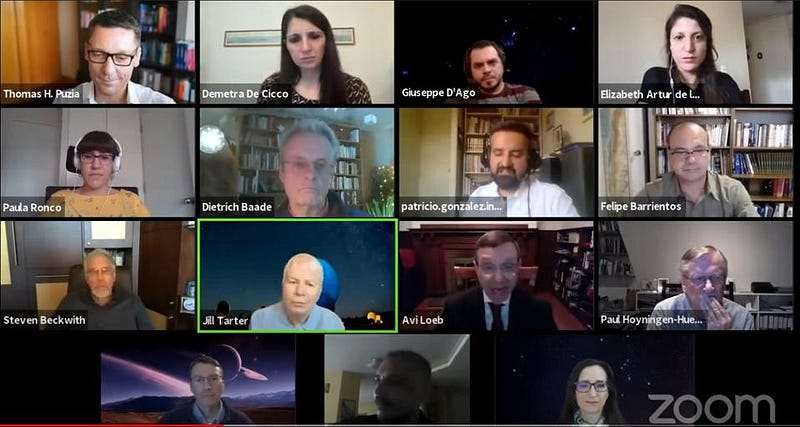
It’s a classic technique that people use to avoid confronting their own flaws: when someone calls out your bad behavior, instead of owning up to your culpability in the situation, to instead find something else to talk about and change the narrative until you are the victim of injustice, rather than the perpetrator. In this case, Loeb doesn’t address the substance of Dr. Tarter’s qualm — that he is unfairly painting the field as a bunch of cowardly sheep by restricting their speculations to natural, testable hypotheses that fit the data — but instead claims that he’s a hero to the “technosignatures” crowd by advocating for much more funding, and that scientists who even suggest looking for technosignatures are victims of bullying.
Of course, Dr. Tarter, who’s been with SETI for some 40+ years, has spent a large part of her career searching for technosignatures in the radiation that permeates the cosmos. Searches for technosignatures go far beyond Tarter’s own work and the general work at SETI, as scientists have combed through data from fast radio bursts as well as investigated them — in the form of alien megastructures — as a potential cause of the famous large-scale dimming of “Tabby’s Star.” (Jason Wright, a pioneer of that idea, has an interesting podcast here with NASA that’s worth listening to.)
Tarter offered pushback to Loeb’s claim, starting to say, “I don’t feel bullied,” but she was quickly interrupted by Loeb.
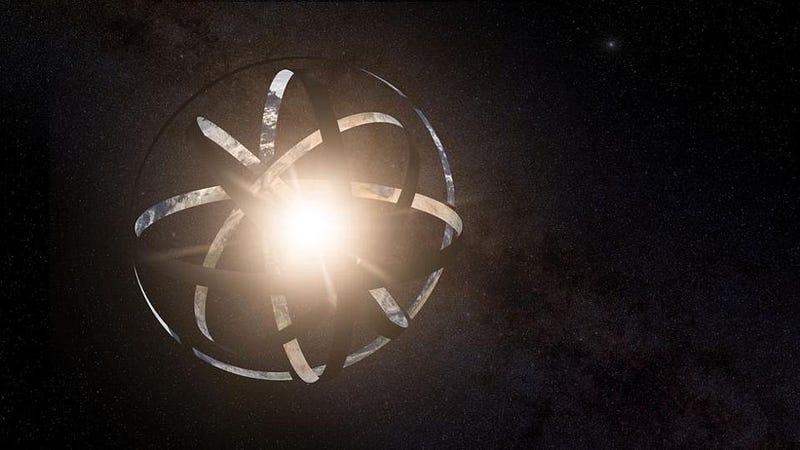
The second point: strawpersoning the scientists who disagree with you. Speaking over Tarter, Loeb continued, disingenuously characterizing anyone who isn’t enamored with his ideas as somehow being resistant to investigating the phenomenon occurring in the Universe in a robust scientific fashion. The exchange continues,
“Just a second, let me finish. Now my second point is, ah, my second point — which is very important — is, in the dark ages, people used to say that the human body should not be dissected — there shouldn’t be operations — because it has magical powers because there is a soul. Now, think about it. If scientists were to say, ‘we don’t want to discuss the human body until there are extraordinary evidence for something, we don’t want to discuss it because of all this nonsense being said about the human body.’ Where would modern medicine be? I say science has an obligation to focus on problems that are of interest to the public and use the scientific method to resolve them.”
This is a little bizarre. Again, it absolutely fails to address Dr. Tarter’s claim entirely: that Loeb is doing a tremendous disservice to the field by claiming that the substantial work being performed by hundreds or even thousands of other scientists is inconsequential. Instead, Loeb equates the lack of interest in the claim that ‘Oumuamua could be of intelligent alien origin to a declaration that something is too sacred to be investigated scientifically, while demanding that the field do exactly what it is in the ongoing process of doing.
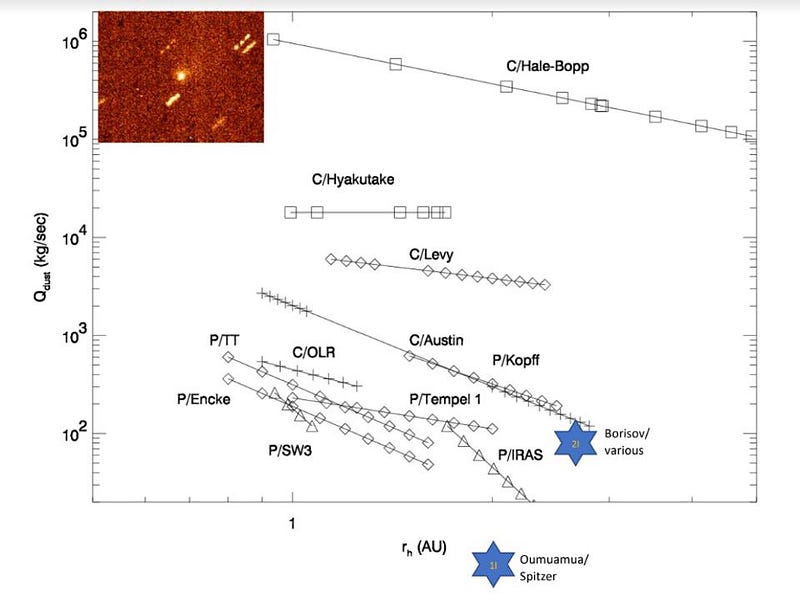
But the analogy is completely backwards. If we were thinking scientifically and using the scientific method — which, remember, is evidence-based and reliant upon drawing conclusions from the data you collect — the question of the existence of a human soul would require extraordinary evidence to be validated. The onus of proof is on the one making the claim of existence, not on the one making the claim of non-existence. That is what is meant, earlier, by Dr. Tarter’s allusion to the famous statement that “extraordinary claims require extraordinary evidence.” To put it bluntly, when we use the scientific method — considering the full suite of the evidence available and all the possible explanations that we’ve considered, including extremely wild ones — we find no evidence that ‘Oumuamua is of alien origin.
Next, Loeb attacks an imagined enemy:
“And rather than say, ‘we need extraordinary evidence’ and then step on the grass, and not allow it to grow, which is currently the case. We need extraordinary evidence, but anyone that mentions this possibility is ridiculed by some, eh, blogger who doesn’t even write a single paper in a decade. That makes no sense whatsoever! This blogger should first practice science.”
I assume — and my ears are burning here — that Loeb is referring to me and the fact that my publication record in academic journals ceased in 2009, and in particular to this recent article here, whose claims I am 100% happy to stand behind.
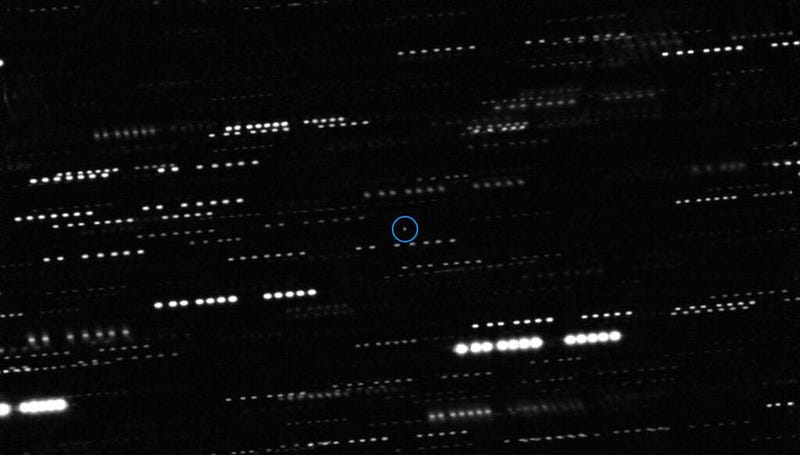
Dr. Tarter again pushed back on Loeb’s assertion: this time on the assertion that it’s him — quality scientist Avi Loeb — against “some blogger,” by reminding him of her own credentials and her own role in searching for technosignatures.
“Well, some of us do,” Tarter responded, leading to a few grins among the other astronomers present, while Loeb once again began talking over her.
“No no, let me finish! How, how do those people make statements about scientists that explore these possibilities within the scientific method? That’s the acidic culture that I’m talking about. There’s an acidic culture that suppresses innovation in the current culture of science. And the best example is SETI, because they say, ‘we need extraordinary evidence,’ and then they don’t let people search for that extraordinary evidence by a factor of a thousand.”
Loeb then laments that research is ubiquitously conducted on String Theory and searches for dark matter, but not on SETI, which is an opinion that he’s entitled to, of course, but isn’t germane to the discussion at all. String theory isn’t studied, funded, or explored by astronomers, but by theoretical high-energy physicists. The search for dark matter, regardless of results, teaches us new, experimentally-derived information about the nature of matter and its cross-section with everything that exists in the Universe. Does SETI deserve more funding? Almost certainly. Does it deserve funding at the expense of other endeavors that are also worthy? This is unlikely to be a positive or productive line of thought, but then Loeb turns to the nastiest but most predictable tactic.
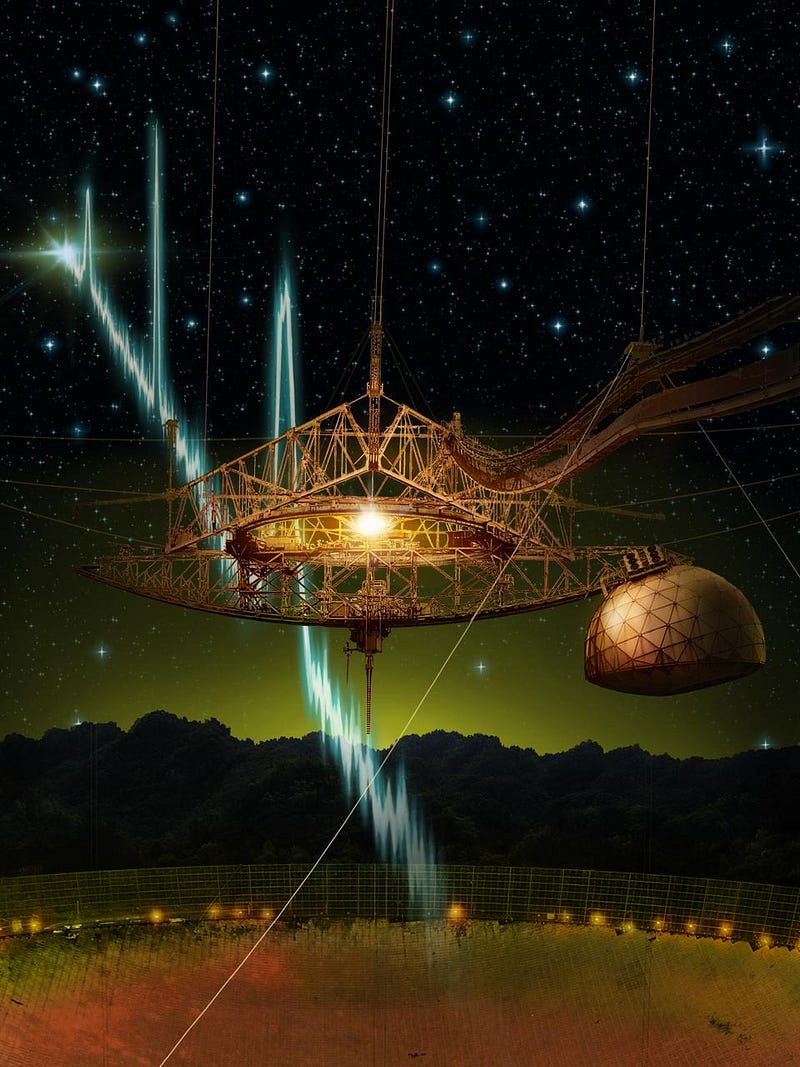
Loeb accuses Dr. Tarter of opposing him, and intimates that by opposing him, she’s opposing her own interests. This is indefensible, and it really shows a complete unwillingness on Loeb’s part to even consider that he may be in the wrong in any way whatsoever. Instead of considering Dr. Tarter’s point, Loeb attacks her directly for not joining with him. (And note how she calmly responds, returning again to her main point and refusing to let Loeb deflect.) Referring to SETI, he continues:
Loeb: “It’s part of the mainstream. That’s my argument. And I find it really surprising that I get opposition from you [pointing aggressively] to that notion!”
Tarter: “Well, I don’t… I really don’t like the generalization of the whole culture being badmouthed.” [Loeb attempts to interrupt, but Tarter continues.] “And yeah, sure, I’d love our budget to be a thousand times…”
Loeb [successfully interrupting]: “Ok, so why are you opposing me? Why don’t you join me in arguing for a thousand times more budget?”
Tarter: “But, Avi, I’ve been doing that for 40 years. Alright? What you’re arguing…”
Loeb [interrupting again]: “You are arguing with me about the credit of who gets credit for arguing that rather than saying ‘I endorse your view?’”
Loeb continues to belabor this point, mocking Tarter in a high-pitched voice — even though she not once expressed displeasure that Loeb appears to be painting himself as more of a SETI expert than Tarter herself — for about 20 seconds. Much to her credit, she doesn’t react to his provocations, but when he gives her a chance to speak again, she calmly returns to her original point.
Tarter: “I think the culture as a whole shouldn’t be badmouthed. That’s what I’m saying. I think you’re being too sweeping in your condemnation.”
Loeb, refusing one last time to address Tarter’s point, responded with the final word on the topic: “Ok, factor of a thousand is too sweeping, ok, fine.”
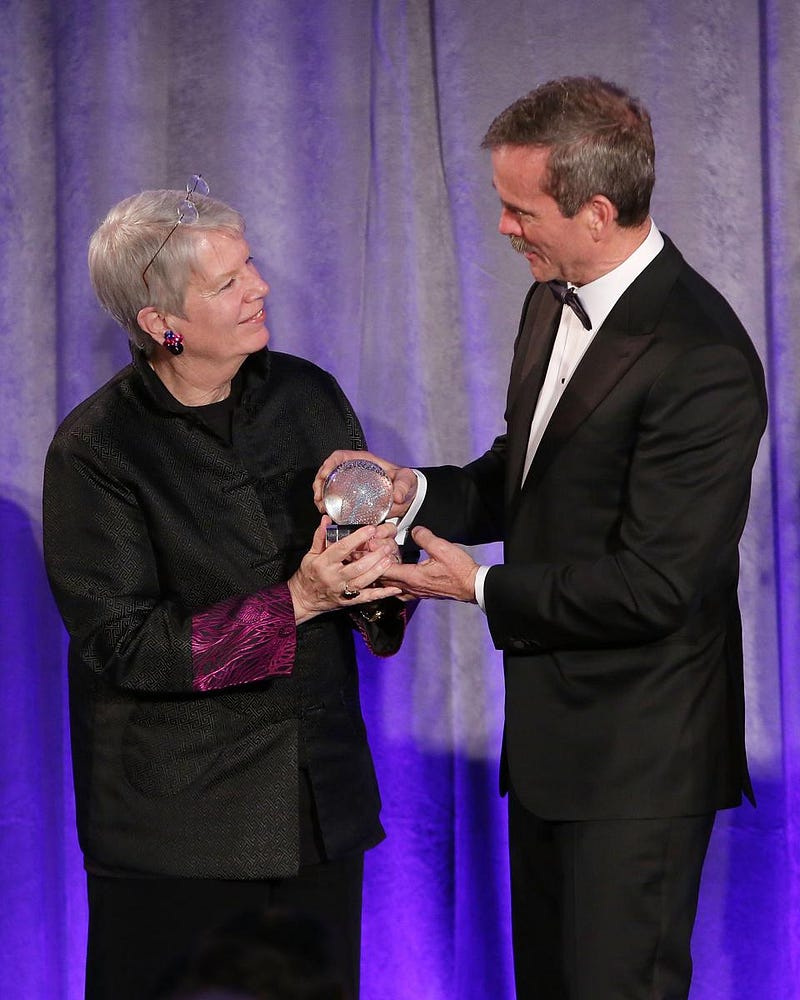
There’s a lot to say about this behavior: it’s clearly unprofessional, toxic in many ways, and while not inherently sexist on its own, it certainly illustrates the double-standard of where the line is for unacceptable behavior for men and women. Note how careful Dr. Tarter is not to raise her voice, to remain calm, and to refuse to deviate from her point. Meanwhile, Loeb accuses others of bad behavior — the community, “some blogger,” and even Dr. Tarter herself — while refusing to even address the substance of Tarter’s point: the harm he’s inflicting on the astronomy community through his disingenuous mischaracterization of the field.
Many professional astronomers were eager to weigh in about this particular exchange. At my discretion, I have kept these responses anonymous to protect anyone from professional retaliation, but sentiments include:
- It was fun that Loeb and his buddies wrote a paper. But that’s it and there’s no more data to be had on this object. As a matter of course, we are surprised by what nature cooks up over, and over, and over again. A novel interstellar object might reasonably [be] expected to have novel properties. Yes, there are an awful lot of things we don’t understand and haven’t seen before — we’re used to this! Reaching for aliens right off the bat? The key step to advancing [astronomy] is not to leap for any solution until you’re damn ready for it.
- I think he is very jealous of the Contact movie, and wants to supplant Jill Tarter in the public imagination. His new SciAm interview calls for a movie with Brad Pitt playing him. Trumpian levels of delusion…
- The issue is not the claim [of aliens] itself. It is in ignoring the substantial research ongoing within the scientific community. The result is not science communication and both undermines people’s work and inhibits [people’s] understanding the journey to find life beyond our planet.
- He did this on a webinar for the general public, and he comes off as a petulant man-child having a breakdown over not getting his ice cream, whilst Dr. Tarter is showing the restraint that many women in our field have to have to not be dismissed as ‘hysterical’.
- Science requires both imagination and the scientific method. Imagination spins up theories; the scientific method culls the unworthy ones. Other people have made much about the proper role of the scientific method here, and I don’t think it’s worth rehashing. Every beginning science student knows about Occam’s razor. You try the simplest explanations, and only when they don’t work do you invoke more complicated or speculative explanations. Which Loeb stopped doing a long time ago. His willful ignorance on this point is aggravating. This point has been made, repeatedly.
- It is horrible that these things happen. And this lady stood her f — — — ground, so much respect there.
- The search for life in the universe is hardly an “oddity”. It’s not some quirky novelty populated by a tiny minority of fringe scientists. It is a vibrant, growing field, drawing significant resources, planning and executing missions and experiments at all scales. And it has been doing this for decades. If Dr. Loeb were to actually take even a minimal investment of time beyond his own interests, that would be plain to see. He has maligned hundreds of our brightest, some young, some with 40+ years under their belts, but all approaching this most fundamental of questions we can ask with the same tool: the real scientific method. Any proven claim of life beyond earth will require the work of thousands, not a lone actor who yells the loudest, shouting down those that dare question or refute, and it will require verifiable evidence, not just an appeal to the simplest explanation for the sake of fame or expediency.
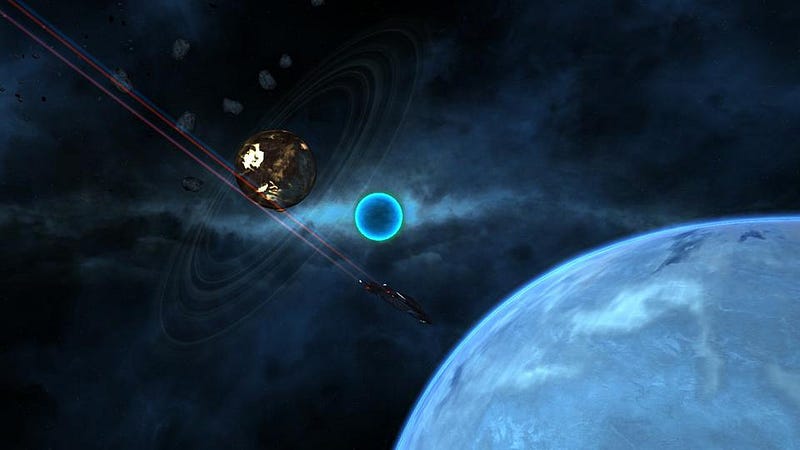
I reached out to Avi Loeb to ask him if he had any plans to make a public apology, whether he had a response to the substance of Dr. Tarter’s criticisms of, how, from her perspective, he’s unfairly portrayed the field of astronomers, and if he had any further clarifications or comments. He responded by pointing me to this “apology” he sent out to Harvard Center for Astronomy mailing list,
“As many of you may know, I gave the Golden Webinar on the late afternoon of Friday, February 12, 2021. The webinar, which will be posted shortly on YouTube, lasted 75 minutes and in the Q&A portion I spoke in a manner that was inappropriate to a colleague, Jill Tarter. I apologized to Jill Tarter afterwards and we had a friendly exchange subsequently. My apology to her is attached below.
I am sorry that this Q&A exchange offended some of you. That was not my intention. As many of you know, I am deeply committed to support the SETI work pioneered by Jill, and to the promotion of women and minorities in science.”
followed by this “apology” to Dr. Tarter herself,
“I realize that I was too quick in my response to your excellent comment today and I apologize for it. After reflecting about it, I realize that I should have said that I greatly appreciate your past contributions to promoting this cause and I am delighted to join forces with you and push the envelope further. My criticism is, of course, focused on the limited support that SETI is receiving from federal funding, which should be increased considerably to reflect the public interest in the subject.”
As you can clearly see for yourself, there is — even now — no acknowledgment of the content of Dr. Tarter’s criticism, of Loeb’s culpability in pouring derision upon his colleagues, or of any acknowledgment of wrongdoing. The closest you get is “I spoke in a manner that was inappropriate” and “I am sorry that this Q&A exchange offended some of you.”
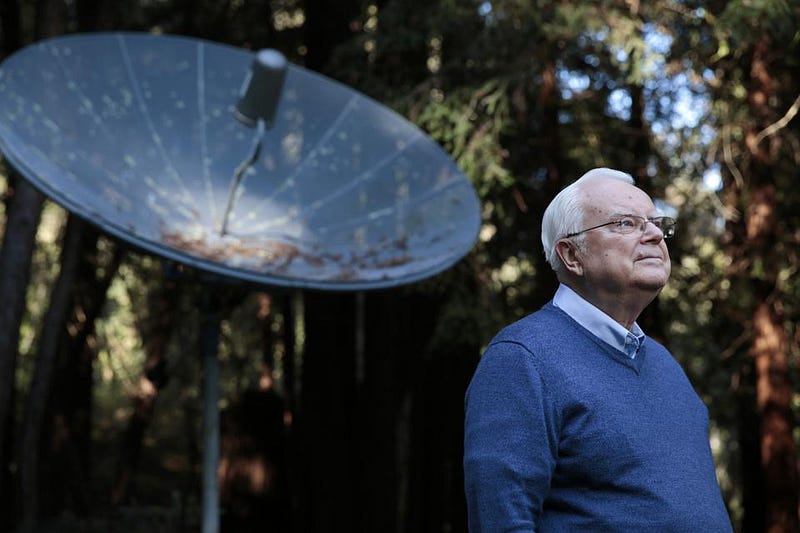
The fact of the matter is that there are literally thousands of scientists active working to solve not only the mystery of ‘Oumuamua, but the great cosmic mysteries that are out there in the Universe. Extensive searches are being made to the limits of our technological capabilities and the funding provided to study the Universe, and everyone engaged in the endeavor is keenly aware of how underfunded the entire scientific enterprise is relative to the knowledge it yields. For as long as this is the case, there will be infighting over which scientific endeavors are more deserving than others for funding. But let’s not pretend otherwise: searching for extraterrestrial life — including, where unambiguous predictions can be made, extraterrestrial intelligence and technosignatures — is a robust and growing area of legitimate scientific research, but we must resist the urge to see (and claim) aliens where the evidence does not warrant it.
It’s also imperative that we resist this common impulse: to tear down other areas so that we may build up our own favored ones. Scientists that work on things other than what you would choose are not wasting their lives; they are following their own paths, the same as you follow yours. What’s important, through all of this, is that we recognize the value inherent in others: both in the work they do and also simply in their value as human beings. After all, if we’re intelligent enough to potentially find another technologically advanced civilization, assuming they’re out there, wouldn’t we want to prove to them that we’re intelligent enough to treat one another with kindness?
Starts With A Bang is written by Ethan Siegel, Ph.D., author of Beyond The Galaxy, and Treknology: The Science of Star Trek from Tricorders to Warp Drive.

